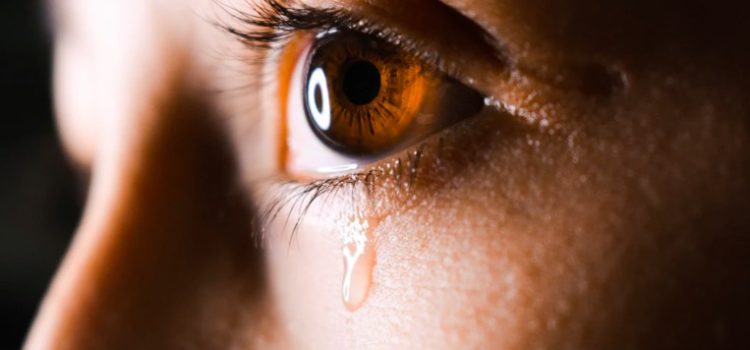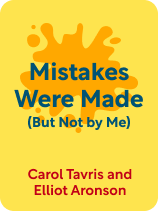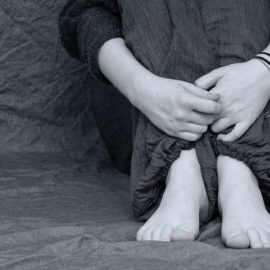

This article is an excerpt from the Shortform book guide to "Mistakes Were Made (But Not by Me)" by Carol Tavris and Elliot Aronson. Shortform has the world's best summaries and analyses of books you should be reading.
Like this article? Sign up for a free trial here.
Why do people hurt others? Why do people justify causing harm?
While we can’t always understand why people hurt others, we can try to understand how they justify it. In Mistakes Were Made (But Not by Me), Carol Tavris and Elliot Aronson argue that we use self-justification to hurt others so we can preserve our reputation as being good and right.
Continue reading to find out how excusing harm ultimately hurts ourselves, and how we can move past it.
How We Justify Causing Harm
Why do people hurt others? Sometimes people inflict pain to get rid of their own pain, but don’t like to admit it. The authors state that when we’ve caused harm, we use self-justification to preserve our self-image as good, righteous people. When we do something that hurts someone else, we often reduce the resulting dissonance by justifying in one of three ways:
- Denying wrongdoing entirely
- Making excuses that minimize our culpability: for example, “I couldn’t help it,” or “I was provoked”
- Accepting responsibility for our actions, but viewing them as isolated past incidents and ignoring their consequences in the present
Reactions to Hurting or Being Hurt
When we’ve hurt someone else, the authors note, we usually seek to move past our harmful actions quickly to resolve the painful dissonance of our actions. Over time, memory distortion and self-justification help to reduce the sting of guilt and remorse.
(Shortform note: Often, we try to move past actions that we’re ashamed of by suppressing the painful emotions that come with them, such as guilt. This isn’t effective in the long-term, though—emotions that we suppress can actually get worse over time, hurt our self-esteem, and cause physical health issues. Instead of suppressing your feelings, write down what happened that made you feel guilty. Acknowledge any other emotions that come along with your guilt—anger, regret, and so on. Examine them with nonjudgmental curiosity—often, the situation that caused your guilt is more complex than you think. Working through it can help you productively resolve your dissonance and understand all of your feelings about it.)
By contrast, when we’ve been wronged, we generally hold onto the pain of the event for a long time. We’re much more likely to report lasting negative consequences from the actions of the person who hurt us.
(Shortform note: It can be hard to forgive someone when they’ve hurt you, especially when they justify their actions instead of apologizing. However, experts say that forgiveness can also be great for our health and happiness. So, how do you know when it’s time to forgive? Typically, we’re able to forgive when three conditions are met: First, you’ve received a sincere apology. Second, you were able to recover from the hurt—if an emotional or physical injury is permanent, it’s much harder to forgive. Third, the offending behavior stops. If someone hurts you in the same way over and over, they aren’t prioritizing your well-being, and they aren’t truly sorry. The next time you have trouble forgiving, ask yourself if all these conditions have been met.)
Additionally, sometimes we use victimhood to justify harm without tarnishing our self-image as a good person. Being wronged creates a sense of self-righteousness, which we can then use to justify cruelty toward the person who hurt us in the name of getting back at them.
How Making Amends Can Heal Both Sides
Though many of us ignore, downplay, or deny our actions to resolve the dissonance that happens when we’ve hurt someone, that’s not the best or only way to feel better. Rather, making amends and acknowledging your wrongdoing can be healing for both you and the person you’ve hurt.
Making amends may feel painful at first, but it also allows you to let go of internalized shame around making mistakes so you can learn, grow, and heal. When you hurt others, you hurt yourself too, and rationalizing with excuses or denying your culpability only reinforces the idea that you’re not allowed to make mistakes. In reality, we’re all fallible—accepting that by making amends can be an act of self-compassion, allowing you to forgive yourself.
For the person you’ve harmed, your acknowledgment of the role you had in their suffering can help them heal by making them feel understood and validated. It shows that you care about their feelings and that you’ve made the effort to understand their perspective. That being said, for amends to be healing, they must be genuine—if your apology is disingenuous, it can make the situation worse.
Part of that means avoiding the habit Tavris and Aronson mention of minimizing your actions because they happened in the past—your actions may still strongly affect the person you hurt, even if you’ve moved past them. If you’re apologizing after a long time, explain why it took you so long, and empathize with any remaining feelings they may have.
Practicing Radical Acceptance
In Radical Acceptance, Tara Brach argues that we lash out when someone hurts or betrays us because their actions make us feel unworthy, especially when they’re someone we love. We begin to think there’s something wrong with us, and we resent both the other person for their actions and ourselves for being unworthy of love. Instead of self-justifying poor behavior that’s driven by these feelings of anger and resentment, Brach suggests practicing radical acceptance: accepting that bad actions don’t mean someone’s a bad person and that everyone has goodness inside them. First, accept the goodness in yourself, forgive yourself for your own harmful actions, and let go of the blame and resentment you use to protect yourself from pain. Then, you can begin to forgive others.

———End of Preview———
Like what you just read? Read the rest of the world's best book summary and analysis of Carol Tavris and Elliot Aronson's "Mistakes Were Made (But Not by Me)" at Shortform.
Here's what you'll find in our full Mistakes Were Made (But Not by Me) summary:
- Why we feel discomfort when we act in a way that doesn't align with our values
- How patterns of self-justification can cause our beliefs to diverge sharply from other people’s
- How we can break the cycle of self-justification and hold ourselves accountable






